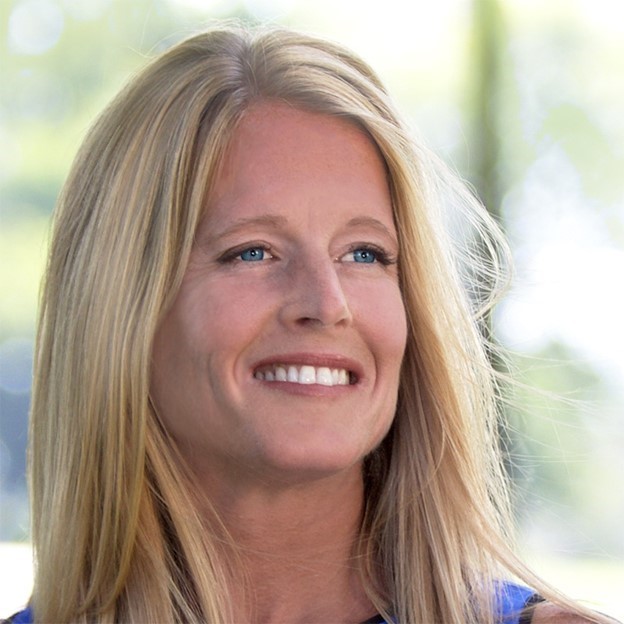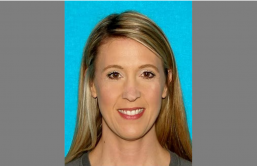
(Photo : Avant Founder Kristin Ihle Molinaroli Shares Five Winning Career Moves For Women )
When considering how the world of work has shifted since the onset of COVID-19, Kristin Molinaroli, the inventor behind LUMEN, a patent-pending talent development app says, "I think we are seeing a realignment of values, the value of work itself [in the context of life] and how we work." She believes that "Technology has changed how we work and how we can work. Companies are catching up. Employees are asking, 'What is success? What does it mean to me? At what cost? And what do I want, versus what do I need in my life to feel successful?'"
Values reflection and re-alignment means the workforce likely has a more crystallized view on career aspirations. This provides a rich opportunity for more meaningful and laser-focused development. In times where many employees are working from home and are increasingly connected to video conferences leaving little room for in person "drop ins" and "in the moment coaching," making time for career development is mission critical.
Dr. Molinaroli often works with female leaders and emerging leaders. She says, "There's no disputing that women have continually advanced in the workplace over the decades. My aspiration is to see women persist in their progress, particularly in executive and board leadership roles." As women navigate the impact the pandemic has had on the world of work, Avant founder Dr. Kristin Ihle Molinaroli offers some sage advice.
As a licensed psychologist and thought leader with 30 years of assessment and 22 years of consulting experience, Kristin Molinaroli, formerly known as Kristin Ihle Helledy, is a seven-time All-American athlete who is no stranger to going the distance on the track and in the workplace. Known for her executive coaching, development, and team assessment, Kristin Molinaroli truly enjoys bringing out the best in others. Here are five valuable tips that she believes all women should follow to further their careers.
1. Lean into self-assessment.
Self-assessment, according to Kristin Molinaroli, is really about making sure that you're continuously reflecting on your aspirations and goals. Circumstances change, as do people's experiences, which is why you need to revisit the following simple question: "Where am I now, and where do I want to be?" Molinaroli believes that you must be clear in your self-assessment since that serves as a "divining rod" for the next steps you need to consider. The more specific you can be, the better others can help you along the way. Remember that we are a work in progress which means one can let go of the need to be "perfect" at every juncture.
"I recommend clarifying your functional and technical competencies, your career experiences to date, and your leadership competencies, and making sure that you're getting feedback from others so that you can get meaningful guidance and so you are clear about how others view you," Molinaroli says.
2. Identify your mentors and advocates.
"Having a sounding board is key, and I think it's essential to have strong relationships," Kristin Molinaroli says. "I think having more than one kind of sponsor or advocate is also essential because if your sponsor gets promoted into a different division or leaves the company, and you only rely on one person, then you're kind of out of luck."
Although Kristin Molinaroli has had many professional mentors throughout her career, the people who inspire her most are her customers and even total strangers.
"I can remember being in a hotel lobby in Japan where I ran into a gentleman who was curious about my work. We discussed the cultural elements that can affect an engagement. I conveyed how I study the history, values and language of a country or region." Kristin Molinaroli says. "During our conversation, he shared something that was culturally salient in Japan. I won't belabor the specifics of what he shared but it had an impact. And, while I never saw this stranger again, his guidance was exceptional. I applied his coaching in the client meeting. His input allowed for a more open dialogue with my client than I had initially hoped for. I cannot catalog how many people have mentored me along the way. I can't count mainly because I am sure I received mentoring and didn't even know it was happening at the time."
3. Be active in your role.
"Don't wait for your supervisor to develop you," says Kristin Molinaroli, who has three decades of experience in psychological assessment and evaluation. "Use your assessment to go after what you need. Identify community organizations in terms of your company. If there are special projects that you see, raise your hand and say, 'I would like to participate in that project.'"
Kristin Molinaroli also advises women to be on the lookout for affinity groups or networks within their companies, as well as in their communities that could enable growth and development.
4. Frame your achievements.
Kristin Molinaroli recommends that women do more than just say that they completed a project on time; it's important to describe how that work benefited the company. "It's really important for women to say, 'Here's how what I did contributed to the overall effectiveness of my department [and], ultimately, the company's performance. If a project is finished on time and under budget, make that known by directly saying, 'Hey, guess what? I helped roll out a system that contributed to a 2% increase in profitable growth for our organization.'"
Kristin Molinaroli also suggests framing achievements at the end of each quarter to track progress consistently.
5. Break down barriers.
Kristin Molinaroli acknowledges that women have made great strides in senior leadership roles and narrowing the wage gap, but the journey continues. "Empower yourself to address potential barriers," Kristin Molinaroli says. "And, keep in mind that some barriers can even be internal to one's self."
Molinaroli points out that so many invisible factors affect women, from personal barriers to societal and resources, and it's important to be aware of them and actively work to mitigate them.








